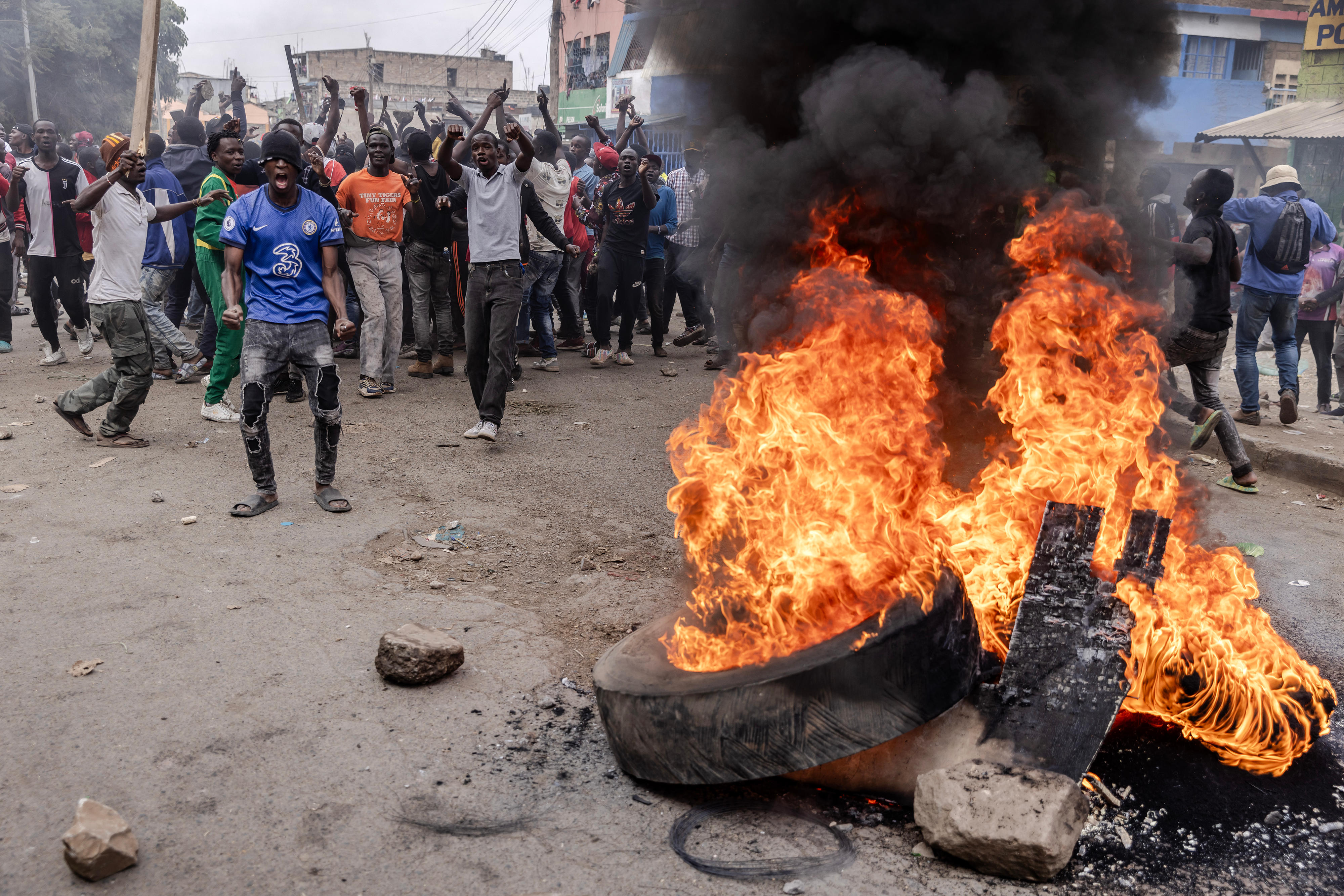Kenya's government, opposition begin talks after protests

Combo: The leader of the Kenyan opposition coalition “Azimio la Umoja” Raila Odinga (L) and Kenya's President William Ruto (R)
Kenya's government and the opposition are set to launch talks Wednesday aimed at resolving a bitter political feud following a spate of deadly protests over electoral reforms and the high cost of living.
Veteran opposition leader Raila Odinga has organised 10 days of demonstrations since March -- most blighted by violent confrontations with the police -- to demand an audit of last year's election that brought President William Ruto to power.
At least 20 people have died in the clashes, according to official figures, although rights campaigners put the toll much higher.
The unrest in one of East Africa's most stable democracies has provoked alarm at home and abroad and spurred calls for mediation to end the standoff.
Wednesday's talks will be a conducted by a 10-member joint committee and are due to start at 11:30 am (0830 GMT).
But no timeframe has been set for their duration and the exact agenda is the subject of contention.
Odinga's Azimio La Umoja coalition said it wants to discuss the rising cost of living as well as electoral reforms after Odinga lost his fifth bid for the presidency to Ruto, claiming he was cheated of victory.
However an earlier draft agenda did not include the economic crisis nor a raft of tax hikes introduced in July, angering Kenyans suffering from spiralling prices for basic goods such as fuel and food.
Critics accuse Ruto of rowing back on promises made during the August 2022 election campaign, when he declared himself the champion of impoverished Kenyans and pledged to improve their economic fortunes.
- 'Peace not paralysis' -
Kimani Ichung'wah, the ruling party's parliamentary majority leader, on Monday maintained Kenya Kwanza would not entertain talks on the economic crisis despite Azimio's demands.
"We will listen to them on anything but not the cost of living. The president is already working on it," Ichung'wah, who will lead the government delegation, said at a rally.
Nonetheless, the opposition said Tuesday it was ready for dialogue because "we believe that this country deserves peace not paralysis".
"We want all Kenyans to understand that engaging in honest dialogue does not amount to surrender or cowardice," it said in a statement.
Odinga called off demonstrations in April and May after Ruto agreed to dialogue through a similar process, but those talks broke down and the protesters returned to the streets.
Opposition demonstrations that erupted after Odinga's election loss in 2017 continued until he brokered a surprise truce the following year with former president Uhuru Kenyatta that became known as "the handshake".
Odinga said at the weekend he was not interested in a power sharing agreement with Ruto and vowed to return to the streets if opposition demands are not met.
"If there is no agreement after 30 days, Kenyans will take a different course of action."
Inflation in Kenya has remained stubbornly high, at an annual rate of 7.3 percent last month, and public debt, already an eye-watering 67 percent of GDP or more than $70 billion, is becoming increasingly costly to repay as the Kenyan shilling plummets to record lows of around 143 to the dollar.





